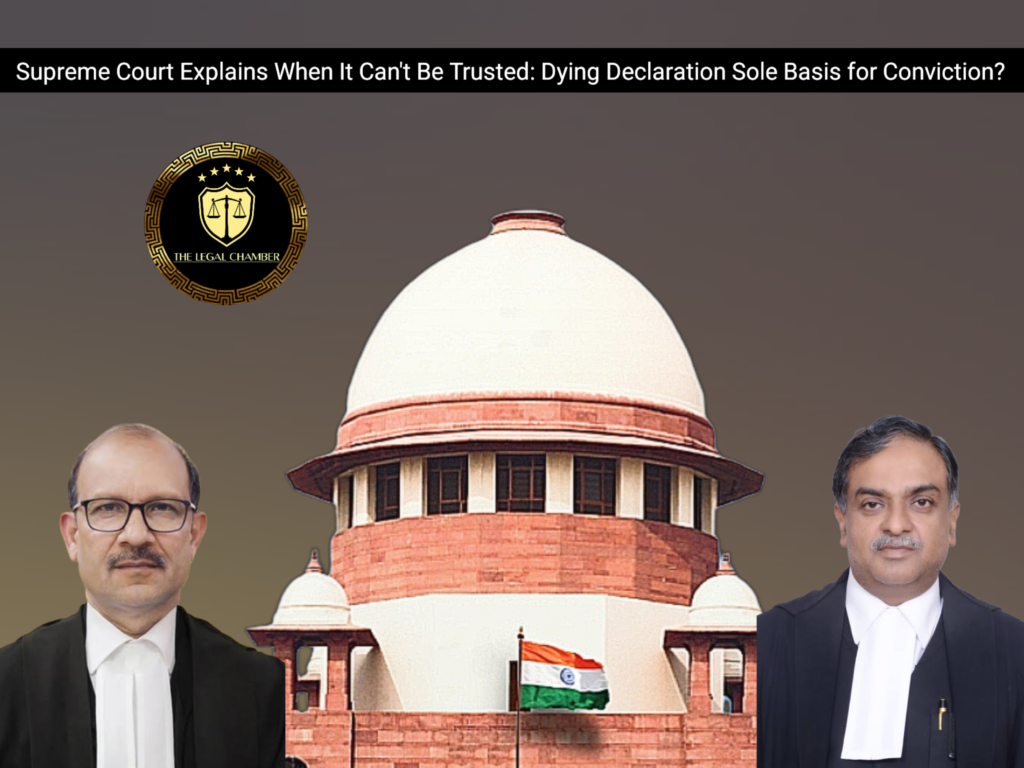
This Supreme Court judgment underscores the indispensable procedural safeguards for a fair trial, particularly the right to effective legal representation. It reiterates that a conviction based solely on a dying declaration requires the court to be fully satisfied of its voluntariness, truthfulness, and that the deceased was in a fit state of mind. The ruling emphasizes that such a declaration cannot form the basis for conviction if it suffers from grave infirmities, such as the lack of a fitness certification from an identified doctor and the recording officer’s failure to note his own satisfaction regarding the declarant’s condition.
Facts Of The Case:
On March 31, 2012, Munish Kumar and his brother Amit were returning to their village by car when they were intercepted by two other vehicles near Mullana. Several individuals alighted, and an altercation ensued during which Munish Kumar sustained serious stab wounds. He was initially treated at CHC Mullana and subsequently referred to multiple hospitals, ultimately succumbing to his injuries on April 14, 2012. Based on a statement recorded by Sub-Inspector Somnath at the hospital, which was treated as a dying declaration, an FIR was registered. The declaration named Tarun Sharma (the appellant) as one of the assailants who inflicted a knife injury. The prosecution’s case rested primarily on this dying declaration, as key eyewitnesses, including the victim’s brother Amit, turned hostile and did not support the prosecution’s version. The trial court convicted Tarun Sharma under Section 302 of the IPC, a decision upheld by the High Court. The appellant then approached the Supreme Court, challenging the conviction and highlighting procedural lapses in the recording of the dying declaration and the denial of a fair hearing in the High Court.
Procedural History:
The procedural history of this case began with the conviction of the appellant, Tarun Sharma, for murder under Section 302 of the IPC by the Additional Sessions Judge, Ambala, vide judgment dated August 26, 2013. He was sentenced to life imprisonment. The appellant then filed a criminal appeal before the Punjab and Haryana High Court, which was dismissed, affirming the trial court’s decision on September 24, 2024. The appellant subsequently sought special leave to appeal before the Supreme Court of India. The Supreme Court, granting leave, heard the criminal appeal and, in its judgment dated September 1, 2025, allowed the appeal. The apex court set aside the impugned judgments of the courts below, acquitted the appellant of all charges, and ordered his release from custody.
READ ALSO:Supreme Court: TET Mandatory for All Teachers, But RTE Act’s Application to Minority Schools Under Scrutiny
Court Observation:
Final Decision & Judgement:
Case Details:
Case Title: Tarun Sharma vs State Of Haryana Citation: 2025 INSC 1139 Criminal Appeal No.: Criminal Appeal No(s). 3810 of 2025 Date of Judgement: September 1, 2025 Judges/Justice Name: Justice Vikram Nath and Justice Sandeep Mehta
Download The Judgement Here